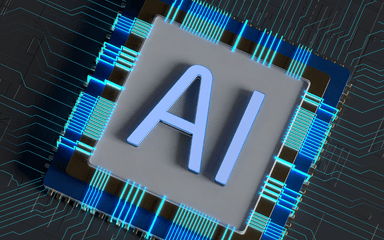Technology and science are intrinsically linked. As new tech is developed and implemented, groundbreaking scientific developments follow; as exciting scientific discoveries are made, technological advances often emerge from them too.
Today, the scientific landscape – particularly the rapidly, constantly evolving realm of scientific research and development – is being transformed by artificial intelligence and automation, new technologies that were once futuristic concepts, but are now reshaping the way scientific organisations and their workforces operate.
From accelerating drug discovery to streamlining laboratory workflows, AI and automation offer unprecedented opportunities to enhance efficiency, accuracy, and innovation. However, realising this potential requires more than just technology; it demands the expertise and experience of people, and strategic implementation, to achieve high-quality, repeatable and impactful project results.
Unlocking Efficiency and Innovation in Science Through AI
AI and automation are revolutionising scientific operations by enabling data-driven decision-making, predictive modelling, and intelligent process control. In pharmaceutical R&D, for example, machine learning algorithms can analyse vast datasets to identify promising drug candidates in a fraction of the time traditional methods require. In environmental science, AI models can predict climate patterns or detect anomalies in real-time sensor data. Automation, meanwhile, is transforming laboratory environments through robotic systems that can handle repetitive tasks with precision, freeing scientists to focus on their core objectives, using their time and expertise to identify new innovations, rather than taking care of manual tasks.
The gains of implementing such technologies and processes are not just centred on process speed and efficiency either; there is vast potential in AI and automation to improve and increase scalability and sustainability too. AI systems can process and interpret data 24/7 without fatigue, enabling continuous experimentation and analysis. Automated workflows reduce bottlenecks in sample processing, data entry, and quality control, allowing organisations to scale their operations without proportionally increasing headcount or overhead.
Innovation is also accelerated through AI’s ability to uncover hidden patterns and generate hypotheses that might elude human researchers. For example, generative AI models can propose novel molecular structures or simulate complex biological interactions, opening new avenues for exploration. This shift from reactive to proactive science, where AI suggests what to investigate next, marks a fundamental change in how research is conducted.
The Expertise Behind the Algorithms
Despite the growing use of the technologies, implementing AI and automation in scientific settings is far from plug-and-play. It requires a nuanced understanding of both the technological tools and the scientific context in which they are applied. Data scientists must collaborate closely with domain experts to ensure models are trained on relevant, high-quality data; engineers must design automation systems that align with specific laboratory protocols and regulatory requirements.
This intersection of disciplines calls for a hybrid skill set, one that includes insight of scientific literacy, data engineering, software development, and change management. Organisations that lack this combination of expertise can struggle to move beyond pilot projects, or risk failing to achieve meaningful ROI from their investments of time, money and resource into artificial intelligence and automated processes.
Additionally, considerations must be made for scientific operations that are governed by strict compliance and validation standards. AI models must be explainable and auditable, and automation systems must be rigorously tested to ensure reproducibility. This adds another layer of complexity that only experienced, multidisciplinary teams can navigate effectively.
Impellam Project Services: Bridging Science and Technology
At Impellam Project Services, we provide the expertise and experience needed to ensure scientific projects and processes benefit from the vast potential of new, innovative technologies, including artificial intelligence and automation.
Specialising in delivering outcome-driven projects through a unique blend of scientific and technological expertise, we take an approach to your requirements that go beyond traditional consulting and provide deliverables-based, result-driven solutions and services.
We can embed multidisciplinary, diversely-skilled teams directly into an organisations workforce and workflows; team that are not only technically proficient but also deeply familiar with the regulatory, operational, and cultural nuances of scientific organisations. This allows us to design and implement solutions that are both innovative and practical, and supported by a combination of our scientific and technological expertise, that can enhance data interpretation, accelerate discovery, and support compliance with industry standards.
And our support doesn’t stop at implementation. We work closely with clients to ensure their scientific teams are trained and supported, fostering a culture of continuous improvement and innovation as new technologies are integrated. This holistic approach ensures that AI and automation are not just adopted but expertly embedded into the fabric of scientific operations.
Helping to Build a Future-Ready, AI-Ready Workforce
Artificial intelligence is here to stay; it’s influence on all aspects of our day-to-day and working lives looks set to grow, at pace and at scale. That’s why we are dedicated to investing in the future of scientific operations, and the future of the experts who’ll be needed at the heart of scientific innovations, through our Data & AI Apprenticeships initiatives.
These programmes are designed to cultivate the next generation of talent equipped to navigate the convergence of science and technology. By fostering a pipeline of skilled professionals, Impellam not only supports immediate project needs but also contributes to long-term capability building within client organisations and helps to empower the next generation of scientists with digital skills and AI literacy required to take on the challenge of discovering future scientific innovations.
